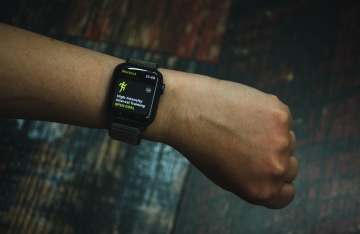Bipolar disorder is defined as a manic-depressive illness that is characterized by erratic changes in mood and energy levels. It can have such an impact on an individual’s life that it leaves them incapable of going to work or school or in extreme cases, even handle the basics of daily life. The relative rarity of extreme cases and general lack of information about bipolar disorder has encouraged a lot of theories about the condition that are not based on fact.
Misconceptions can have a negative impact on bipolar disorder treatment. These misconceptions might prevent families and friends from playing their rightful role in helping a loved one get professional intervention for the condition. The following are some of the things you need to know about bipolar disorder.

Is There a Cure?
Technically there is no cure for bipolar disorder. However, the disease can be managed to the extent that the individual with the condition can take part in the productive day to day activities. Mental health professionals use a combination of medication and therapy for bipolar disorder treatment.
Bipolar disorder is a lifelong mental illness. An approach that includes evidence based psychotherapy and medication is generally considered to be effective in addressing most of the debilitating symptoms of the disease. However, being a lifelong mental illness the individual may experience relapses during and after treatment.
It is important for friends, family and loved ones not to look at relapses as evidence of failure. The condition is managed by consistently addressing the symptoms. Relapses can be beneficial during the treatment process as they provide insights into the underlying patterns of thought that may be making the condition worse.
Medication
There are different types of medication that may be prescribed by a qualified professional. They include mood stabilizers and antidepressants. One may need to take a number of different medications to address the symptoms of bipolar disorder. Because its symptoms can vary from person to person, it may take time before the most effective prescription is found.
While it is advisable to take medication, it is important to ensure that you do not rely entirely on them to manage your condition. Bipolar disorder is a condition that requires psychotherapy to address the symptoms of the condition in the long term.
Psychotherapy intervention seeks to address underlying negative thought patterns and false belief, to equip the individual with the tools that he needs to cope when facing debilitating symptoms of bipolar. Cognitive Behavioral Therapy (CBT) is one of the effective psychotherapy approaches used in bipolar disorder treatment.
Bipolar Disorder Is a Social Issue
Not only does bipolar have an impact on the individual sufferer and his quality of life, but also on the society as a whole. The highest rates of unemployment are with people with disabilities including mental conditions such as bipolar disorder. According to National Institute of Mental Health, it costs the country more than a hundred million dollars in lost earnings, loss of productivity, and other costs.
Bipolar is a real illness that affects friends, family, and loved ones. It is important to get the right information when you or a loved one is trying to cope with the challenges of bipolar disorder. The first step is to seek professional help. A doctor can perform physical exams and mental evaluations to rule out other conditions and to determine the best cause of action to take.




